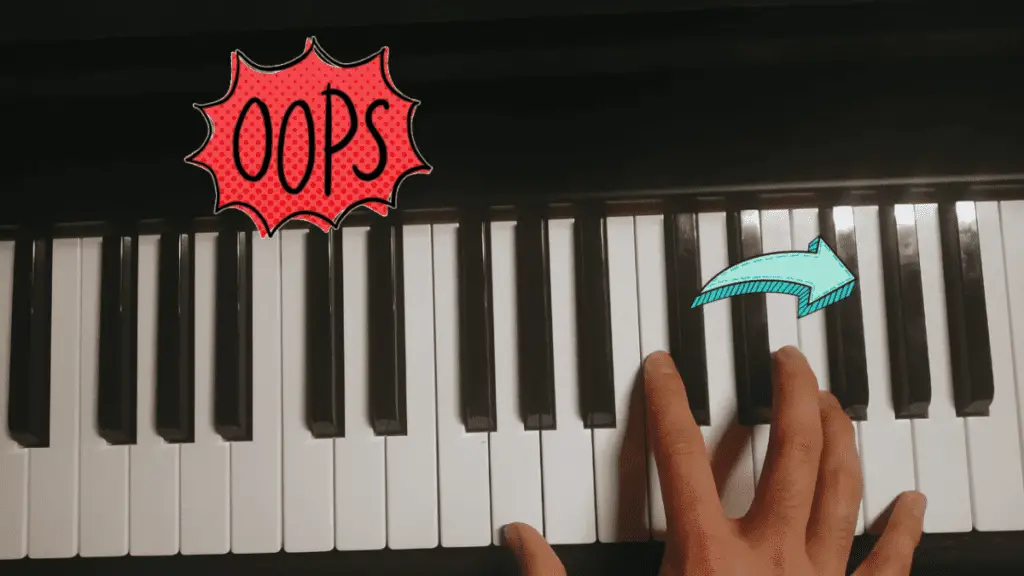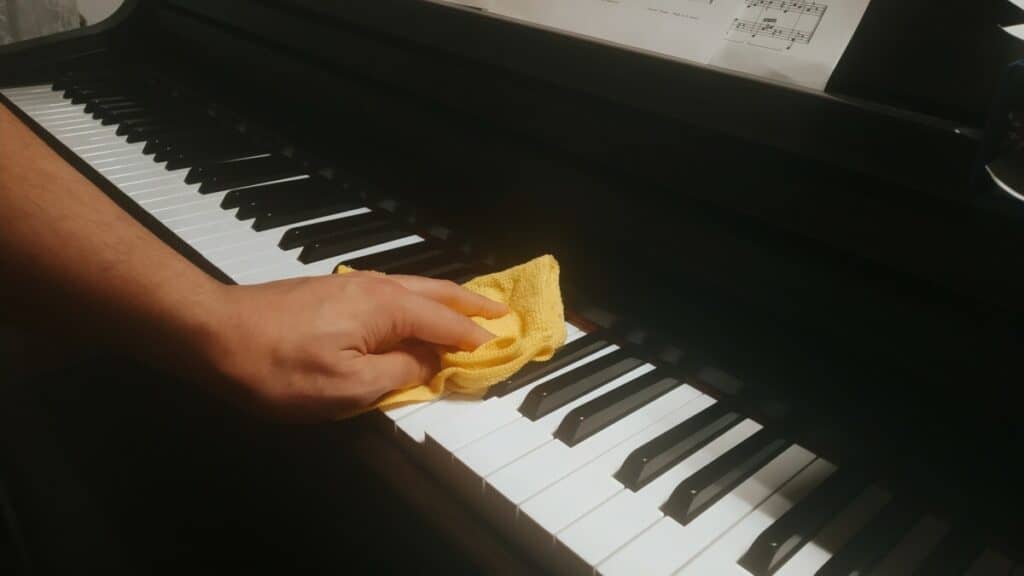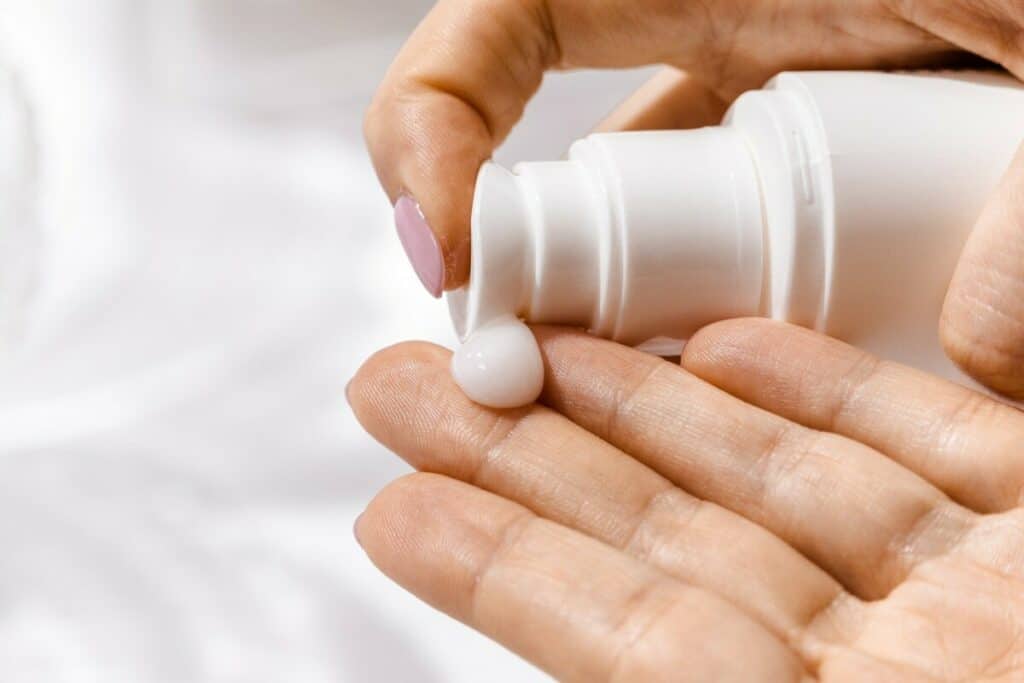This post contains affiliate links.
At some point, we’ve all experienced this while playing the piano: your fingers accidentally slip off the black keys. This could be because your techniques are wrong or because of your oily hands making the keys slippery. Either way, it’s giving you a lot of frustration and you may be wondering if there’s a way to stop your fingers from slipping off the keys.
To stop slipping off piano keys, train your fingers to accurately hit the middle of the keys by practicing scales and arpeggios. If you have oily hands, wash them with soap before practicing and wipe the keys with a damp cloth to make them less slippery. If you have dry hands, use moisturizer.
In this article, I’ll talk about the reasons why your fingers are slipping off piano keys and what to do about them.

Why are your fingers slipping off piano keys?
Your fingers are slipping off black keys because you aren’t hitting keys accurately right in the middle, playing with stiff fingers or because of slippery piano keys caused by hands that are too oily or too dry. Plastic piano keys are also more slippery compared to other materials.
Your fingers aren’t accurate
One of the reasons why your fingers keep slipping off the keys is that you aren’t hitting the keys accurately right in the middle. Hitting black keys at an angle makes it easier for your fingers to accidentally slip off and hit the neighbouring white keys
What to do: train your fingers to hit keys more accurately by practicing scales and arpeggios. Going up and down notes that are next to each other within a scale increases your accuracy, while practicing arpeggios trains your awareness of the position of each key on the keyboard, making it easier to hit keys accurately without looking.
Aside from improving your accuracy, check out this article to learn the many incredible benefits of practicing scales and arpeggios.
Also, to increase accuracy when hitting keys, make sure you’re sitting properly on the bench, sitting an arm-length distance away from the piano, playing with curved fingers, and keeping your fingernails short so that the fingertips are in direct contact with the keys.
Fingernail is an important topic because it can affect a piano player’s skills. Check out Everything You Need to Know About Fingernails and Piano Playing
You’re playing plastic piano keys
Piano keys can be made from different materials, including ivory, wood or plastic. Nowadays, most piano keys are constructed using plastic. Although plastic keys are more durable than their wooden and ivory counterparts, they are also smoother, making plastic keys slippery.
Meanwhile, ivory keys have textures and absorb moisture better, giving them a better grip compared to plastic piano keys. Many concert pianists grew up with ivory keys and report that they prefer the feel of ivory keys over plastic keys.
Unfortunately, nowadays, the production and sales of ivory keys are banned due to ivory keys being made from elephants’ tusks and rhinos’ horns, and there aren’t many good second-hand pianos with ivory keys left, meaning you’ll be stuck with plastic piano keys.
With that said, you can try to roughen the keys using sandpaper, giving them a better grip. There’s also the story of the great pianist Arthur Rubinstein applying hair spray on the piano keys before his performance.
The story goes like this: before the performance, a stagehand noticed that Rubinstein’s piano was very dirty, so he decided to wipe the keys. This upset Rubinstein because the feel of the keys became different. A piano technician was then called in to fix the situation by applying hairspray on the keys. Rubinstein was satisfied with the result and the performance went on.
In my opinion, you shouldn’t try either of these options since you wouldn’t want to ruin the piano keys.
You have oily hands
This is a problem that I and other people have to deal with when playing the piano: oils from your fingers getting on the piano keys, making them slippery.
What to do: keep a slightly damp cloth close by to wipe down the keys before and after using them. Emphasis on the “slightly” since pianos aren’t too fond of water and thus, it’s better to keep any form of moisture away from the piano. You can also use the cloth to wipe the oils off your hands before the practice session.
But what about other cleaning agents like Windex, baking soda, and baby wipes? Are they any better than good old water? Check out this article to find out whether they’re safe to use on your precious piano keys.

Also, try washing your hands with soap so your hands are dry before practicing the piano. However, you must wait for a few minutes after washing your hands so your fingers sweat a little bit, giving your fingers the perfect amount of grip on the keys.
Your fingers are too dry
On the opposite end, people with naturally dry hands may also struggle with slippery piano keys. This sounds counterintuitive since why would dry hands make the keys slippery?
This is because fingers can become slippery without moisture. Think about it, when turning a page of a book, we sometimes lick our fingers so they can grip the page better, or when you lick your fingers so you can peel those clear plastic grocery bags open.
Thus, people with dry fingers slip off the keys because there isn’t sufficient moisture for the fingers to grip the keys.
What to do: apply moisturizer to your hands and wait a couple of minutes before practicing so that the cream sets into your fingers and doesn’t get on the keys, making the keys slippery.

I’ve also heard of people rubbing their hands on their foreheads to get some oil from there, as opposed to using moisturizer since a small amount of moisturizer can still get on the keys, no matter how long you wait for the moisturizer to sets into your fingers.
Your fingers are too stiff
Playing piano with stiff fingers means you don’t have good control over your fingers, making it easier to accidentally slip off the keys. Stiff fingers can be caused by practicing too much, nervousness before a performance, or not doing warm-up exercises beforehand.
What to do: do warm-up exercises like practicing scales, along with dunking your hands into warm water before playing any piano piece so that blood circulates to your hands and fingers better, giving you greater control over them.
Further reading
Aside from slippery keys, there are other reasons why a piano player keeps missing the same notes over and over even though they practice a lot. I give some tips to stop missing notes and hit keys accurately 8 Tips to Stop Missing Notes on the Piano

